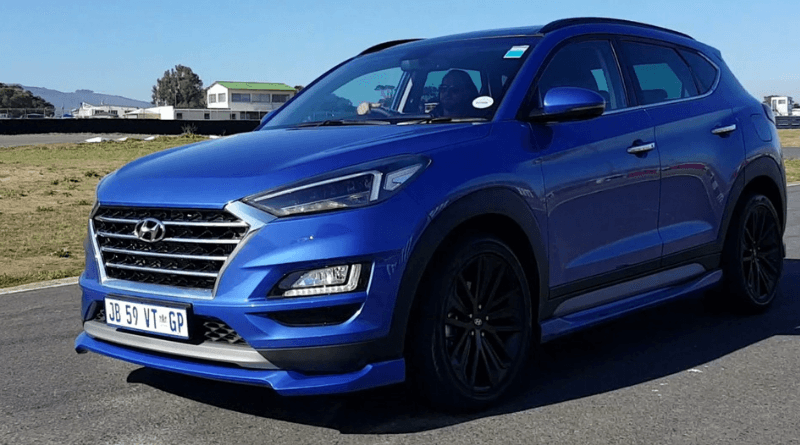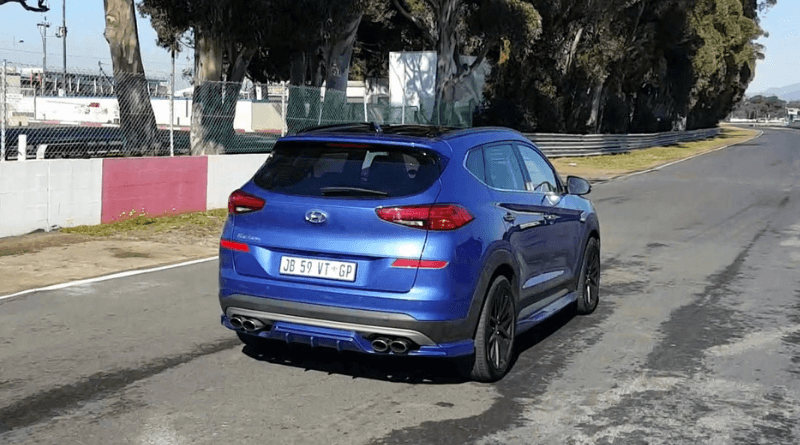The Hyundai Tucson is not an unfamiliar name to South Africans. Over the years it went through numerous name changes, but the essence of the car remained the same. In 2016 the SUV reverted to the Tucson name, dropping the ix35 tag. Sales continued to climb and does it almost always count amongst Hyundai’s top-selling products.
In 2017 Hyundai expanded its Tucson offering by adding a sports model to the range. Fitted with the automaker’s turbocharged 1.6-litre petrol engine, the SUV sat at the top of the Tucson range and did it have enough in the tank to warrant its position. Since coming to market two years ago up until before the launch of the new Tucson Sport, Hyundai South Africa sold 516 of the outgoing Tucson Sports. Given that the Tucson Sport was never going to appeal to a lot of buyers and the majority instead opting for ‘sensible’ offerings in the range, that number is not to be scoffed at.
The Tucson’s success is commendable. In 2019, between January and June, it was the fourth best-selling SUV in its segment (beaten only by the Toyota Rav4, Volkswagen Tiguan, and Mazda CX-5). The new Sport models won’t change much in the sales department, but it’ll give consumers with some financial freedom the chance to express themselves.
The models
Unlike in 2017, Hyundai South Africa opted to add an additional diesel version to the Tucson Sport range. Both models’ engines produce 150kW, but that’s about the only trait their drivetrains have in common.
The petrol model is powered by a turbocharged 1.6-litre engine, boasting a torque figure of 300Nm. The diesel model is powered by a turbocharged 2.0-litre model that’s good for 460Nm of torque. And what’s addictive is that the torque is available between 1750 – 2750 rpm. Both models send their drive to the front wheels. Power in the petrol model is transferred from the engine to the tyres via a seven-speed dual-clutch transmission, whereas the diesel makes do with a traditional eight-speed unit.
Differentiating the Tucson Sport from the rest of the range could not be easier. Both Sport models, based on the Elite package, have a grille that feature a bit more chrome, a lower and more aggressive front spoiler, a side-profile that is a lot wider and prominent, and a rear diffuser that houses four exhaust pipes.
In terms of the exterior design, the Tucson Sport does not disappoint and is both vehicles’ intent made clear from the get-go.
The interior is not different from that of the ‘standard’ Elite model and does both models feature dual-climate control, rear air vents, rear park assist and a rear-view camera, a panoramic sunroof, as well as a seven-inch infotainment system that is Apple CarPlay and Android Auto compatible.

On track
The Tucson Sport was driven both on public roads and a racetrack to put the ‘sport’ to the test. What was noticeable from the offset was how prone the Tucson Sport was to spinning its wheels. Set off with too much throttle and the Sport, especially the 1.6, will get going under a screech of its tyres. Everyday driving will not provoke such mannerisms from the Tucson Sport, but it’s something prospective owners need to keep in mind. Activate Sport mode on the driving mode selector, and the steering becomes a bit more direct and the throttle a bit more sensitive.
The diesel model has an additional Eco mode; this in an attempt to help keep fuel consumption down.
At Killarney international raceway, both SUVs were put to the test and was it the petrol model that shone through most. Steering on both models is very direct and over-eager to inputs, but you had more confidence cornering at speeds in the petrol. The diesel no doubt gathered momentum quicker, but its heavier and bigger engine meant that it was more prone to understeer than its petrol sibling. Both models have very decent ride qualities, but on public roads, away from racetracks and swooping bends, the diesel model seemed a better fit.
Read: Hyundai Tucson gains two Sport models

But if exhaust notes are your thing, the petrol will not disappoint. It has a nice, deep bark every time the ‘box cogs over to the next gear. A louder bark would be welcomed, as well as paddles behind the steering wheel to change gears manually.
Retailing from R654 900 (petrol) and R664 900 (diesel), respectively, the Tucson Sport is now a much more mature, and a much more purposeful model. It ticks almost all the right boxes when it comes to being a sports vehicle and does it, importantly, have the performance to warrant its inclusion at the top of the Tucson range.